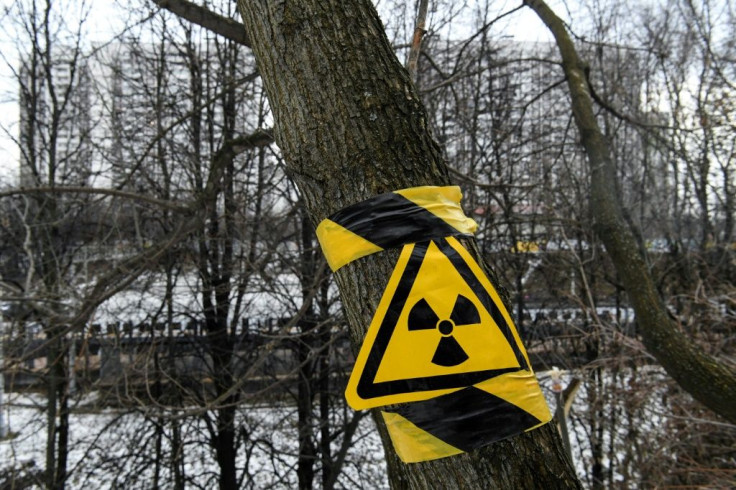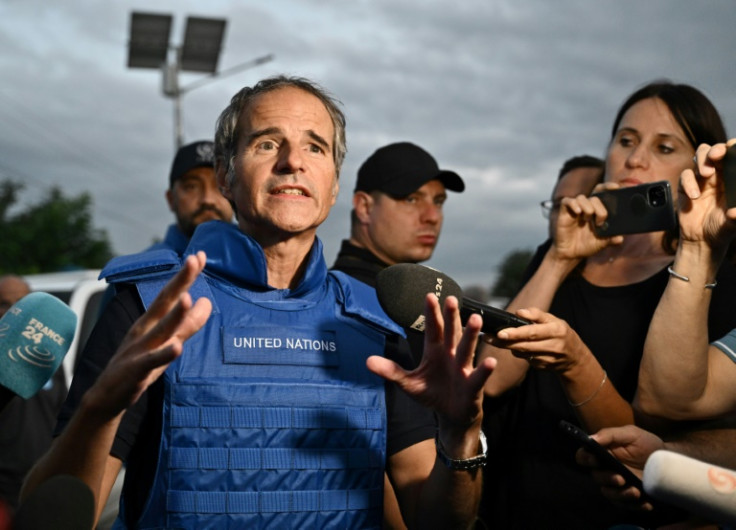Radiation From Possible Ukraine Nuclear Plant Explosion May Reach Turkey, Greece, More Countries

KEY POINTS
- A potential accident at the Zaporizhzhia Nuclear Power Plant may cause radiation to spread over south Ukraine
- The emissions could potentially reach Turkey, Greece, Bulgaria, Moldova and Romania
- The United Nations has called for the creation of a demilitarized zone around the ZNPP after shelling damaged the plant
Radiation from the Russian-occupied Zaporizhzhia Nuclear Power Plant (ZNPP) could spread all over south Ukraine and to several of its neighboring countries in the event of an accident, Ukrainian authorities warned.
A simulation that started Sunday afternoon of a 15-hour-long conditional emission at the ZNPP showed that air masses that day would have carried the plant's emissions over Zaporizhzhia, Kherson and the annexed Crimean Peninsula, the Ukrainian Hydrometeorological Center (UkrHMC) said in a statement.
These emissions would then move to Turkey, Greece, Bulgaria, Moldova and Romania after passing through the Black Sea, Ukraine's natural environment monitor reported.
The ZNPP, which is the largest nuclear power plant in Europe, was captured by Russian forces in early March.
While shelling over the course of Russia's ongoing invasion of Ukraine has caused damage to the ZNPP, the UkrHMC said in its statement that the radiation situation around the plant remained stable.
However, the current situation at the ZNPP is "untenable," and there is "an urgent need for interim measures" to avoid a nuclear accident, according to the International Atomic Energy Agency (IAEA), the United Nations' (U.N.) independent atomic watchdog that promotes nuclear safety.
"[A]ny military firepower directed at or from the facility would amount to playing with fire, with potentially catastrophic consequences," Rafael Mariano Grossi, the director general of the IAEA, was quoted as saying in a report that was released after U.N. inspectors made a visit to the ZNPP.
The IAEA is ready to "immediately" start consultations that will lead to the "urgent establishment" of a nuclear safety and security protection zone at the plant, the organization said.
In a briefing with the U.N. Security Council Tuesday, U.N. Secretary-General António Guterres called for the cessation of all military activities from both Ukraine and Russia at the ZNPP. He also urged for the creation of a demilitarized zone around the plant.
"As a first step, Russian and Ukrainian forces must commit not to engage in any military activity towards the plant site or from the plant site. The Zaporizhzhia facility and its surroundings must not be a target or a platform for military operations," Guterres said.
"Specifically, that would include a commitment by Russian forces to withdraw all military personnel and equipment from that perimeter and a commitment by Ukrainian forces not to move into it. Operators at the plant must be able to carry out their responsibilities, and communications must be maintained," he added.

© Copyright IBTimes 2025. All rights reserved.





















